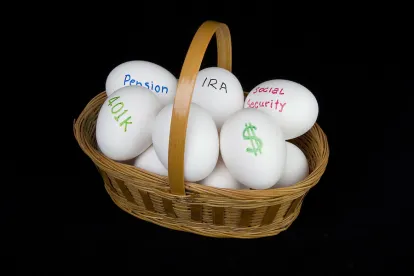Employers will have the opportunity to review and self-correct retirement plan failures upon being identified for plan examination by the Internal Revenue Service (IRS). The IRS announced in early June 2022 the rollout of a new pre-examination compliance pilot program with the intention that it will save resources spent on employee benefit plan audits. The announcement stated that the IRS would evaluate the program at the end of the pilot period, but it did not specify the duration of the period.
Under the new program, the IRS will send a letter to an employer with a plan that has been selected for examination. The letter will notify the employer that it has ninety days to perform a self-examination. The IRS will schedule an examination if the employer does not respond to the notice within the ninety-day period.
An employer that receives a pre-examination notice may want to review its plan documents and operations for compliance with all applicable laws. If any failures are identified that are eligible for correction under the IRS’s Employee Plans Compliance Resolution System (EPCRS) guidance, the pre-examination program allows employers to submit a self-correction to the IRS under the applicable correction program. These correction programs include the Self-Correction Program (SCP) and the Voluntary Correction Program (VCP). Eligibility for the correction programs depends on the type and magnitude of the error(s) involved. Importantly, the employer must notify the IRS within the ninety-day window that the employer is choosing to utilize the pilot program to make corrections.
The best scenario is if the employer’s review during the ninety-day pre-examination period allows for correction through SCP. However, if the employer’s review during the ninety-day pre-examination period finds compliance failures that are not eligible for SCP through EPCRS, the employer, with the agreement of the IRS, may correct such failures consistent with Revenue Procedure 2021-30 and request a closing agreement that will set the penalty amount according to the fee schedule in the VCP. Ultimately, the IRS will review the employer’s submission and make a determination as to whether the failures were properly self-corrected. The IRS can decide to (1) agree with remedying the failures through SCP, which would not entail a closing agreement; (2) accept a resolution through the closing agreement; or (3) “conduct either a limited or full scope examination.”
This pilot program is significant because, normally, employers that the IRS has selected for audit no longer have the opportunity to self-correct under the SCP or VCP. The only correction program available at that point is the Audit Closing Agreement Program (Audit CAP). This program uses a much higher penalty fee structure than the VCP, which caps fees at $3,500.
Consequently, the IRS’s new pre-examination program offers employers a valuable opportunity to proactively correct plan errors with reduced penalty exposure and avoid audits, which can take months or in some cases more than a year to complete. According to the annual IRS Data Book, in 2021, the IRS performed 3,067 audits of retirement plans, which only covers a small percentage of the retirement plan universe. The advantage for the IRS in utilizing this pre-examination program is to be more efficient when choosing which plans to audit, potentially increasing the number of retirement plans with which the IRS has touchpoints.




 />i
/>i

